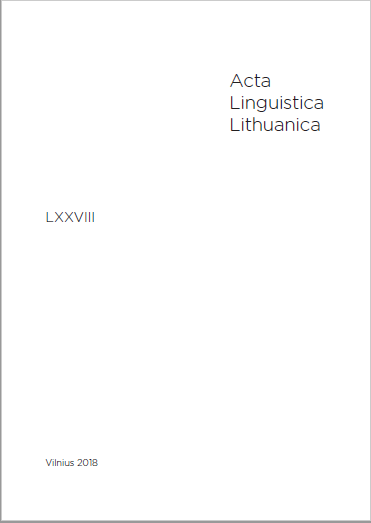Senoji baltų leksikografija Hanzos pirklių tarnyboje. Rankraštinių žodynų paskirtis bei sudarymo laikas
Old Baltic Lexicography in the Service of Hansa Merchants. Purpose of Manuscript Vocabularies and the Time of Compiling
Author(s): Ilja LemeškinSubject(s): Cultural history, Lexis, Historical Linguistics, Comparative Study of Literature, German Literature, Russian Literature, 13th to 14th Centuries, Theory of Literature
Published by: Lietuvių Kalbos Institutas
Keywords: Old Baltic Lexicography; Manuscript Vocabularies; Hansa Merchants;
Summary/Abstract: It is meaningful to study the medieval Baltic lexicography from the perspective of the Hanseatic linguistic policy and in the context of the Hanseatic lexicographic production (bilingual and utilitarian). Such a direction of research reveals the similarity of composition of closely related vocabularies. The comparative analysis of German-Prussian, Prussian-German and Russian-German vocabularies shows that the protograph of the “Russian books” of the 13th–14th centuries (created in Low German in the office of Novgorod) resembled the Elbing vocabulary of the second half of the 13th century by its layout, scope and composition.The latter source will be useful in reconstructing the protograph of Russian-German vocabularies. The comparison with the Latin-Low German Liber ordinis rerum dating to the late 14th century should be considered remote and abstract. By analogy with the akin “Russian books”, it is proposed to call Elbing vocabulary (Elbinger Vokabular) and the so called Grunau’s vocabulary the “Prussian (Elbing) Book” and the “Littl Prussian Book” respectively.
Journal: Acta Linguistica Lithuanica
- Issue Year: 2018
- Issue No: 78
- Page Range: 9-52
- Page Count: 44
- Language: Lithuanian

